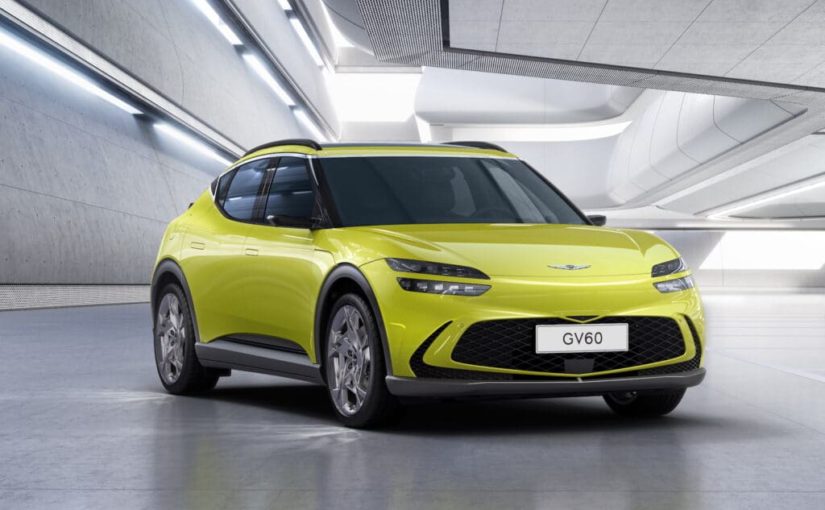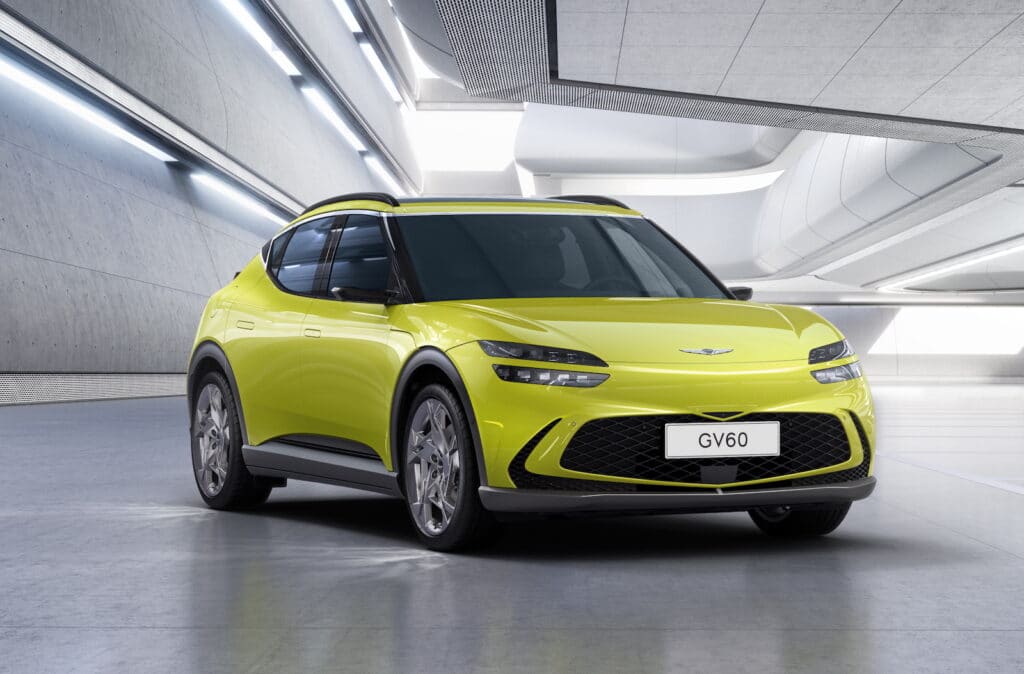
The new Genesis GV60 crossover set to go on sale in South Korea this year will be the brand’s first model using a dedicated battery-electric vehicle platform — but it won’t be the last, the brand announcing it will completely phase out the use of internal combustion engines by the end of the decade.
The Hyundai spinoff has already begun the transformation, but it will accelerate in 2025, with all new models launched after that date running either on batteries or hydrogen. The goal is to have a total of eight of these green models by 2030, when the last legacy model running on gasoline will be phased out.
“Genesis has been on an intensive, bold and successful journey, successfully establishing itself as a truly global luxury brand,” said Euisun Chung, the chairman of the Hyundai Motor Group, during a formal unveiling of the GV60 in Seoul. “Genesis is once again at the starting point of another audacious journey — the journey toward a sustainable future.”
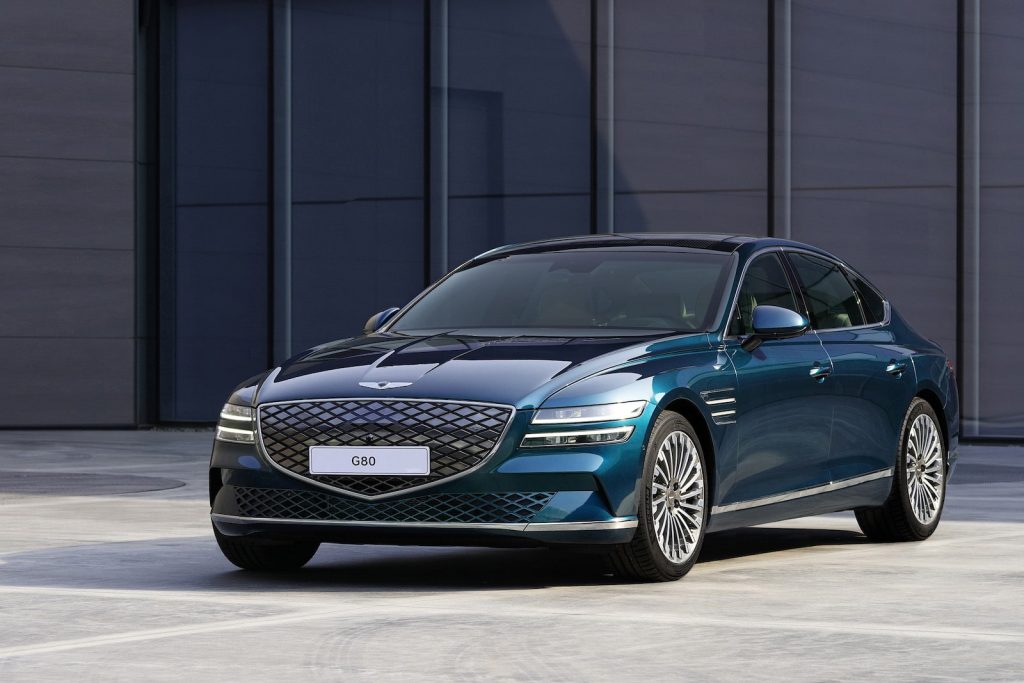
Big plans for the future
By 2030, Genesis hopes to be selling 400,000 vehicles annually and currently plans a mix of four SUVs and four passenger vehicles. An image the luxury brand released appears to indicate that one of those could be a production version of the Genesis X coupe concept. Whether that would sell in today’s SUV-centric car market remains to be seen.
The transition actually began in April, when Genesis introduced its first battery-powered model, the Electrified G80. But that sedan is something of a half-step effort, with its batteries tucked wherever engineers could find space. The new GV60 is far more significant, long-term, because it becomes the first Genesis model to adopt a dedicated platform specifically designed for alternative power sources.
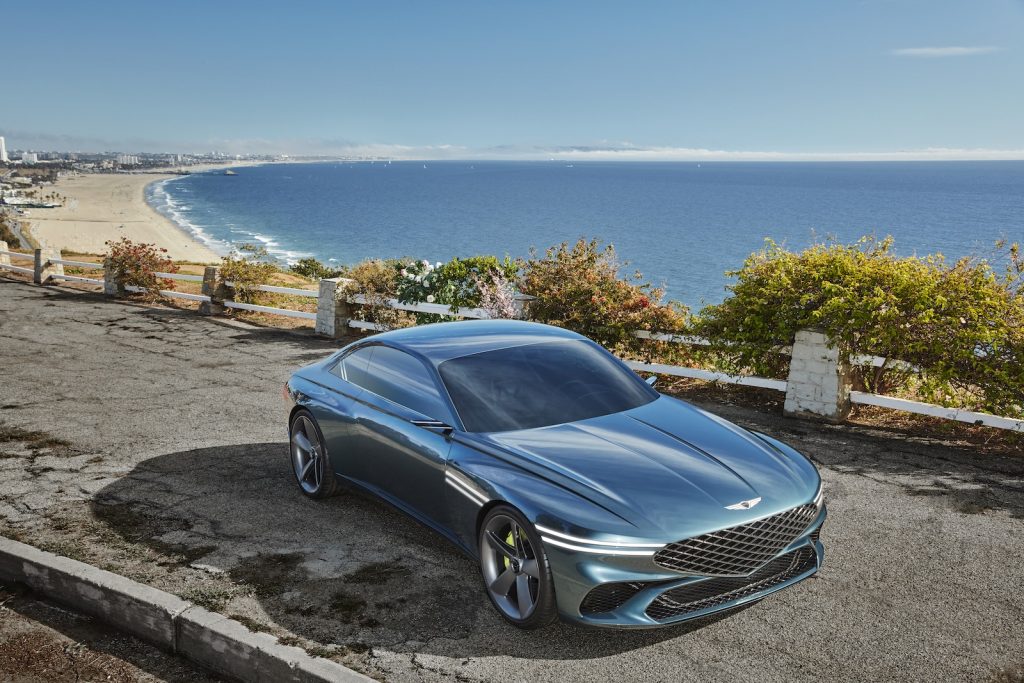
Dubbed the E-GMP, or Electric-Global Modular Platform, it takes the same basic, skateboard-like layout that brands like Tesla, General Motors and Volkswagen are adopting for their battery-electric vehicles. But the Hyundai Motor Group’s new architecture has the flexibility of handling both battery and hydrogen power.
That’s possible because fuel-cell stacks combine hydrogen and oxygen to produce electric current that powers the same motors used for a vehicle like the Genesis GV60. Some proponents refer to fuel-cell technology as refillable batteries.
The Korean automaker is a major proponent of fuel-cell technology and already uses it to power the Hyundai Nexo SUV. All three of the group’s brands — Hyundai, Kia and Genesis — will have FCVs in their line-up in the coming years. The parent company has also formed a new subsidiary, HTwo, which plans to develop fuel-cell systems to power heavy trucks, boats, locomotives and even aircraft.
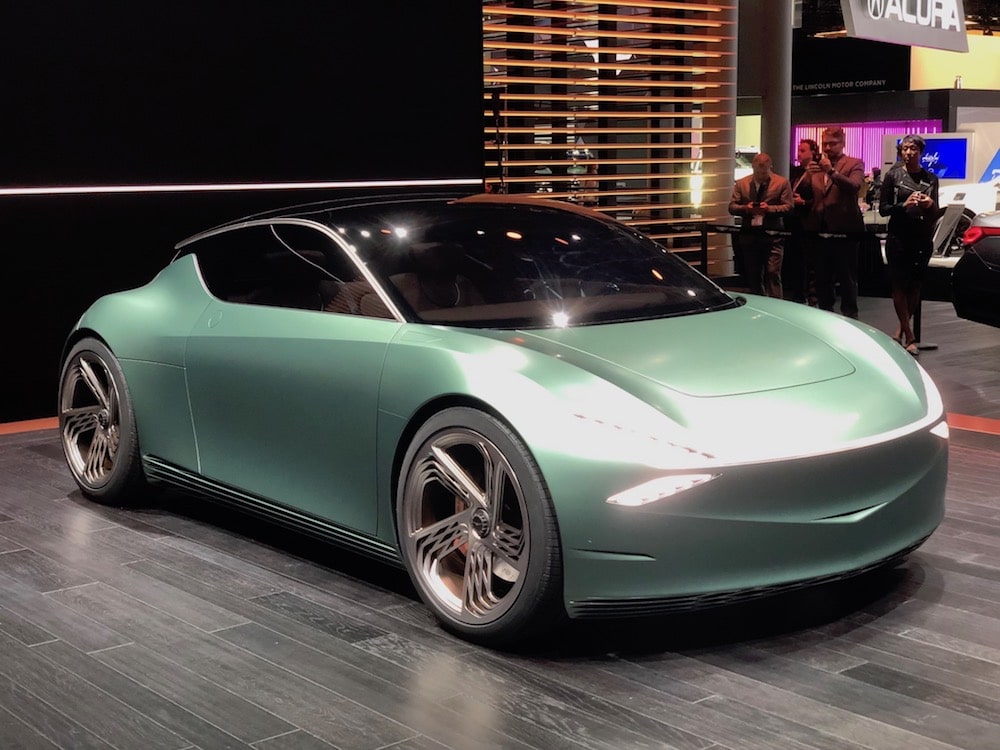
Rapid growth expected
The range of green machines coming from Genesis, in particular, is expected to expand rapidly as the brand grows its line-up. It currently offers three sedans and, with the launch of the GV60 EV, it will have three SUVs, as well. The automaker said it plans to have eight electrified models in the portfolio, though it didn’t provide details on how or when they would roll out.
How consumers will react to the switch by Genesis is far from clear. Electric vehicles, on the whole, account for barely 2% of the overall U.S. new vehicle market. And FCVs are barely an asterisk on the sales charts due to the limited availability of the fuel.
But sales of BEVs more than doubled in the U.S. during the first half of 2021 — and the electric vehicle market is growing even faster in Europe, China and other regions. Sales are also stronger in luxury segments than mainstream due to the higher cost for electrified technology.
As for the Genesis brand itself, it got off to a slow start, in part due to the decision to launch with a pair of sedans, the G80 and G90, and then add a third, the smaller G70. It only added its first SUV, the GV80, in 2020, and brought the GV70 to the line-up this year. But Genesis officials are confident they can boost demand by decade’s end to a global total of 400,000 vehicles annually.
